Yud Shevat Farbrengen With Rabbis YY & Dovber Pinson
Yartzeit of the Rebbe Rayatz & the Day the Lubavitcher Rebbe Assumed Leadership
Monsey Yud Shevat 5779 Farbrengen
- January 15, 2019
- |
- 9 Sh'vat 5779
Rabbi YY Jacobson
8908 צפיות- 9תגובה
- התקשרות
האזינו לכיתה בטלפון
שִׂיחָה +1 (845) 201-1933
כשתתבקש, חייג את מספר הזהות שלהלן.
6163 MP3 MP4 - העתק הטמעה
Dedicated by Fariborz Sani, in loving memory of our father, Rachamin ben Aziz Sani Halevi. May he rest in peace in Gan Eden. And in honor of the Sani family and friends, for health, prosperity and success.
סיכום השיעור:
This farbrengen took place on Tuesday, the night of 10 Shevat, 5779, January 15, 2019, at Ohr Chaim, Monsey NY.
תגים
קטגוריות
Monsey Yud Shevat 5779 Farbrengen
Rabbi YY Jacobson
- January 15, 2019
- |
- 9 Sh'vat 5779
- |
- 8908 צפיות
Dedicated by Fariborz Sani, in loving memory of our father, Rachamin ben Aziz Sani Halevi. May he rest in peace in Gan Eden. And in honor of the Sani family and friends, for health, prosperity and success.
שיעורים קשורים
אנא עזרו לנו להמשיך בפעילותנו
הרשמה לקבלת תוכן (באנגלית) עדכני מאת הרב יוסף יצחק ג'ייקובסון
צרפו חברים ומשפחה לקבוצת הווסטאפ שלנו
צרפו חברים ומשפחה לקבוצת הווסטאפ שלנו




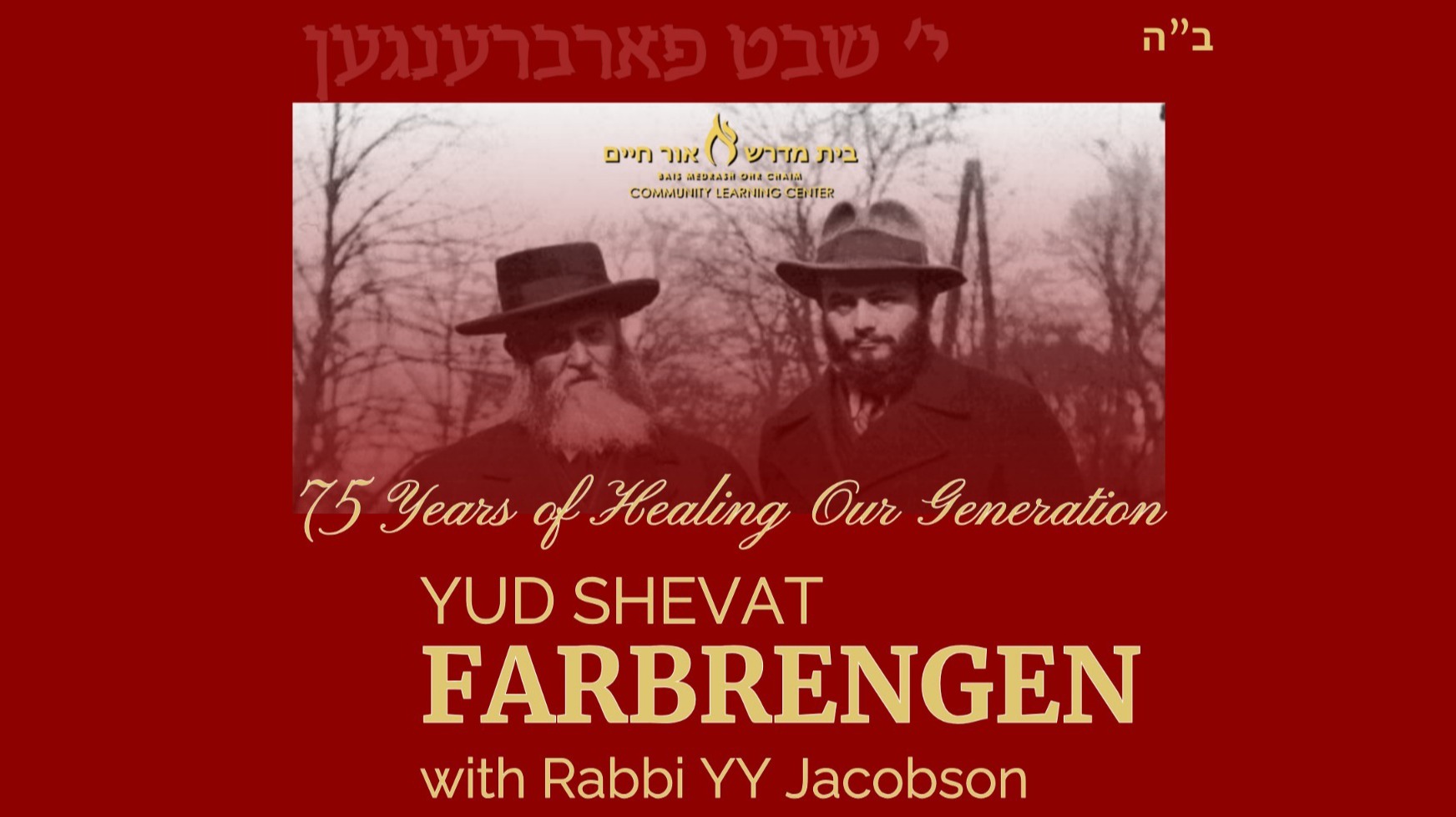
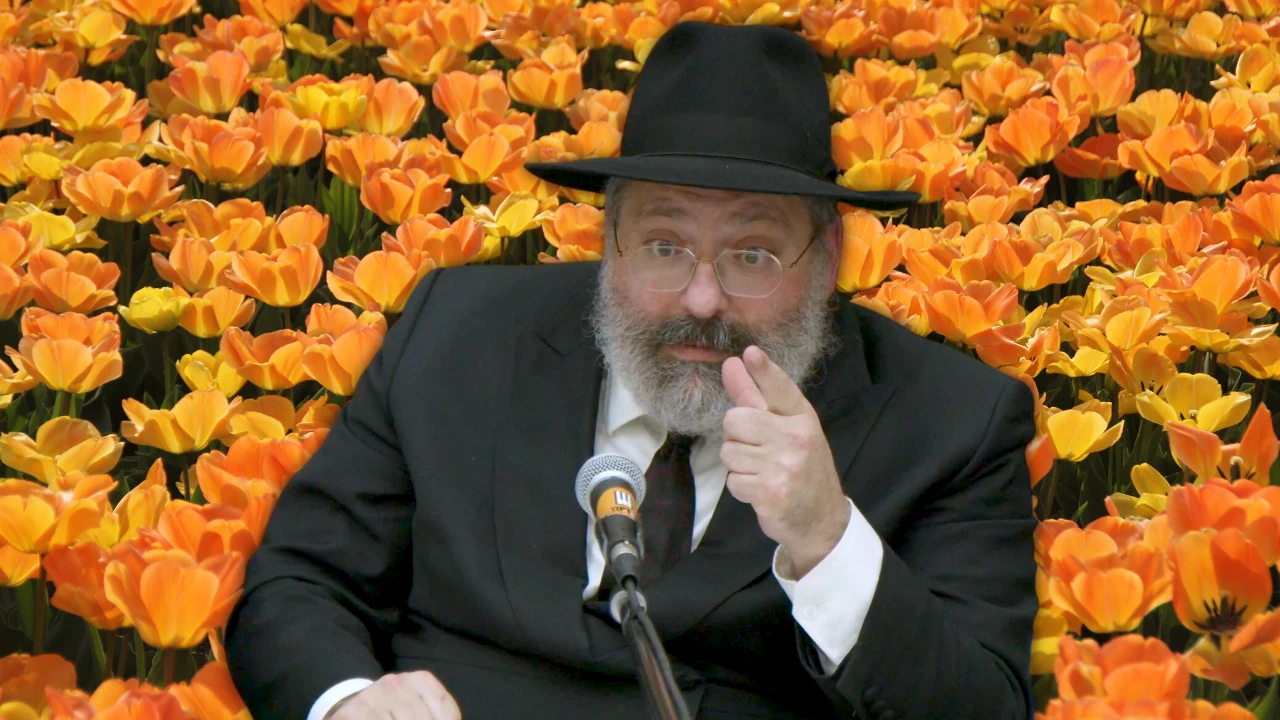
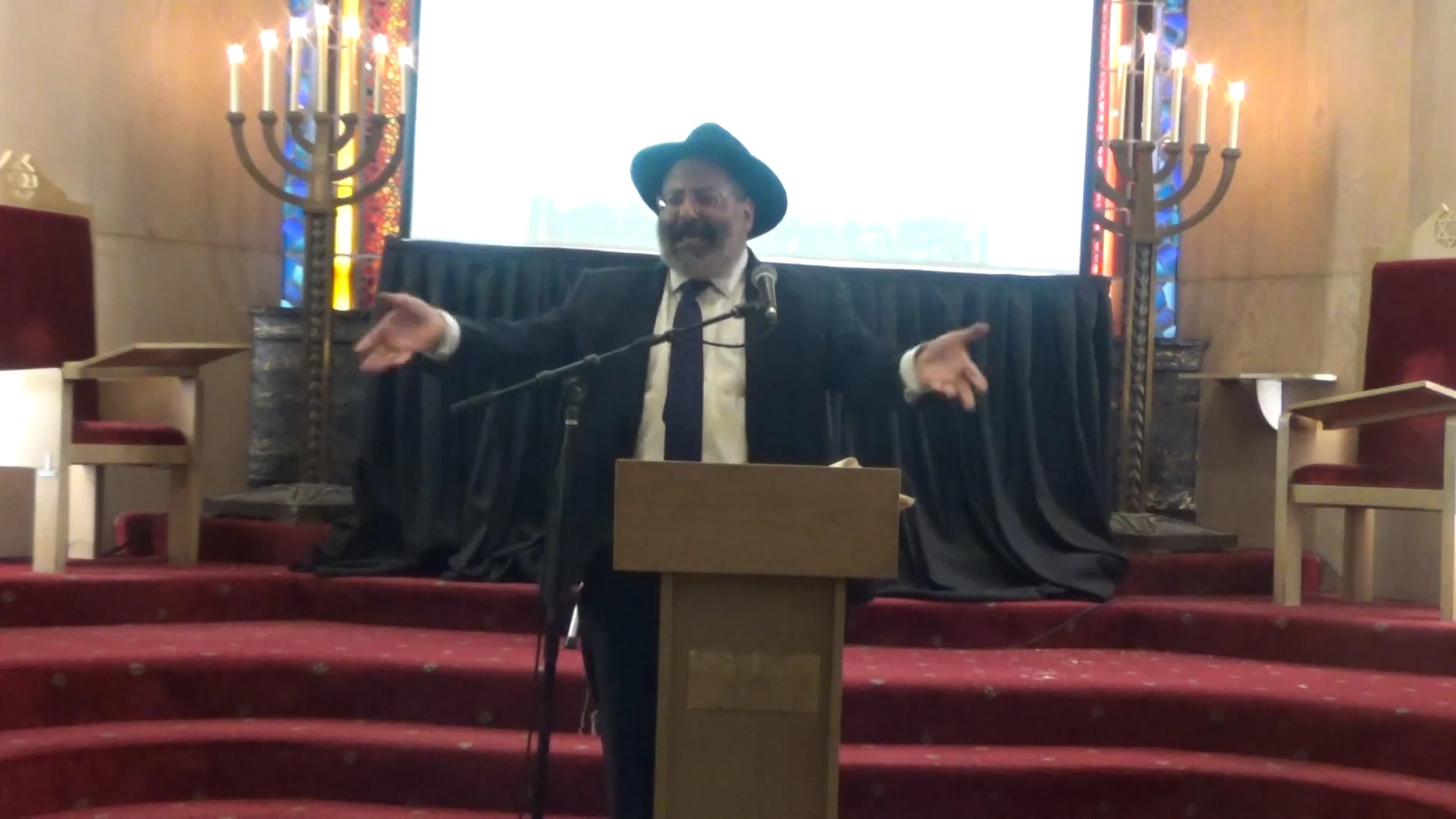
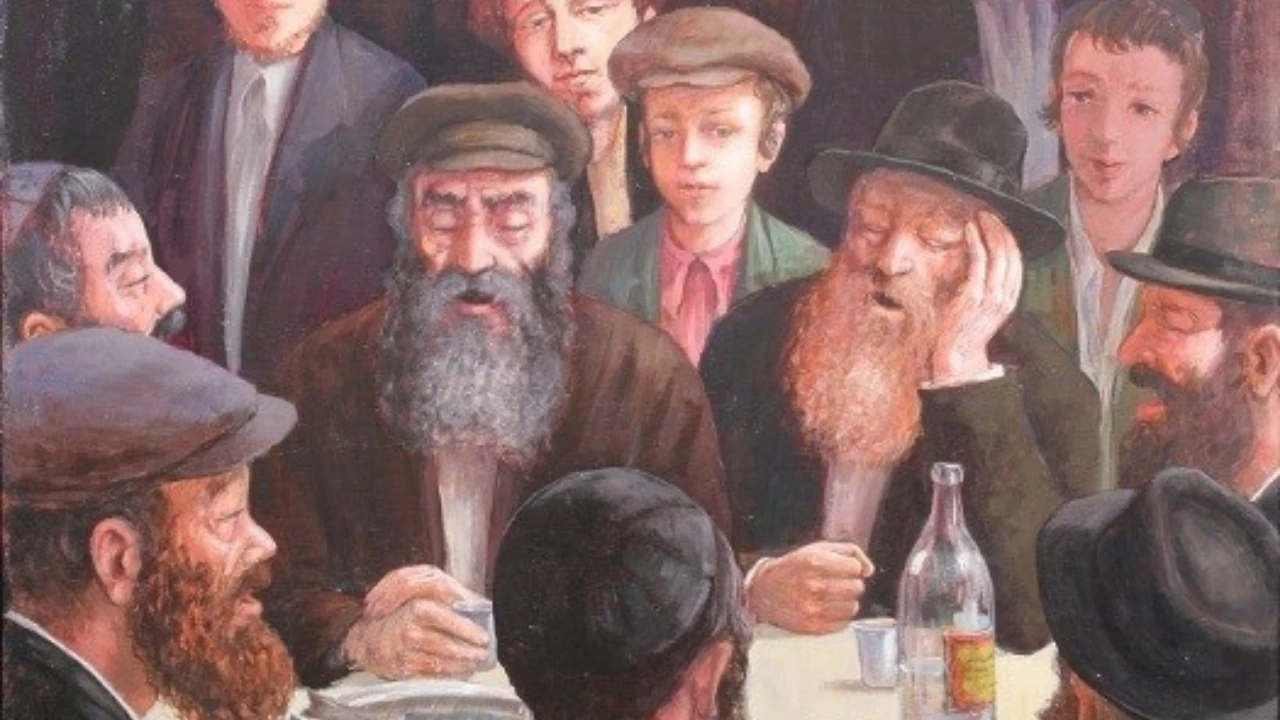
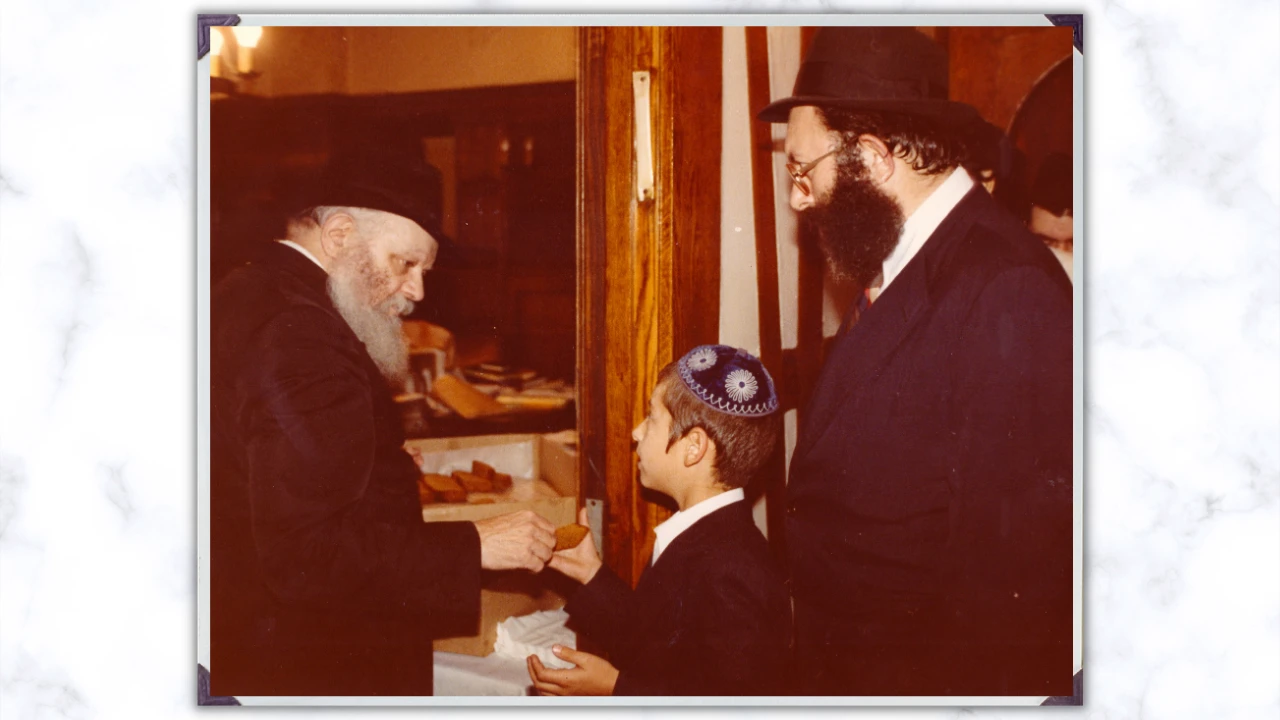

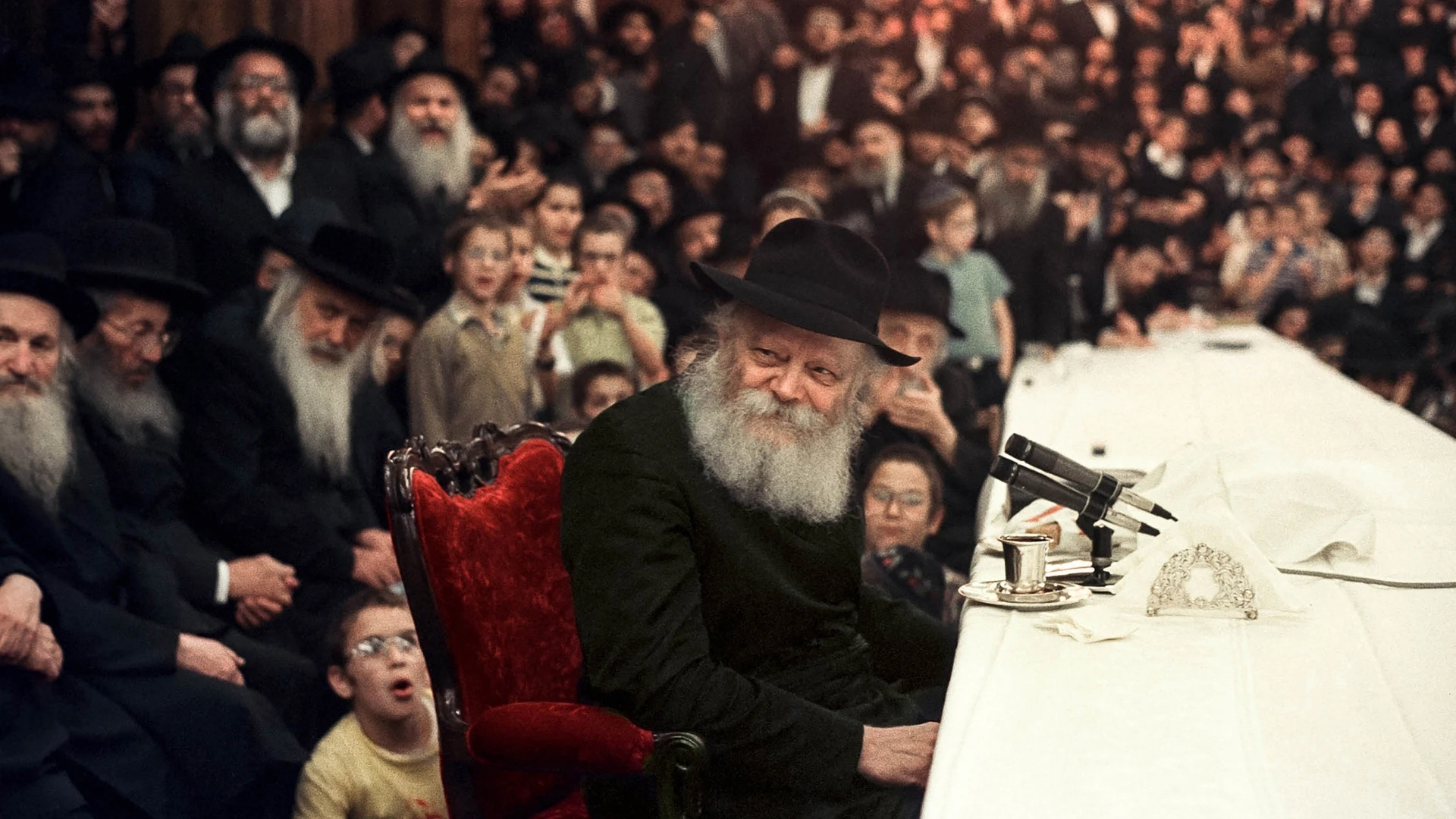


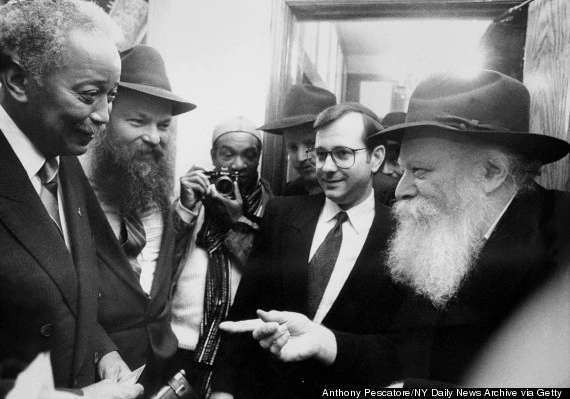
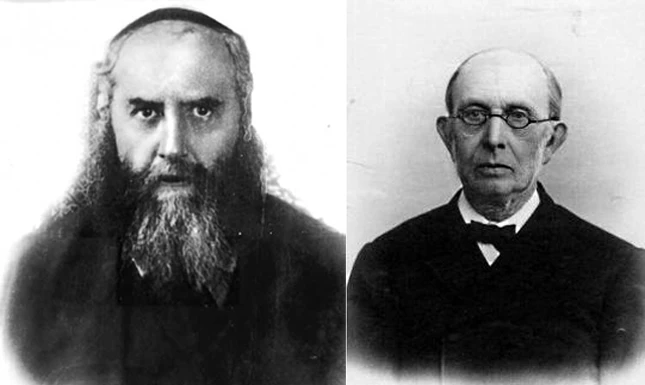
אנא השאירו את תגובתכם למטה!
Elie -6 שנים לִפנֵי
השיבו לתגובה זו.סמן את התגובה הזו.
Eli Weber -6 שנים לִפנֵי
Amazing words of compassion and comfort. Kudos and hatzlacha. The miracle of internet communication. What an incredible world we live in.
Eli
Brooklyn
השיבו לתגובה זו.סמן את התגובה הזו.
Yochanan Gordon -6 שנים לִפנֵי
השיבו לתגובה זו.סמן את התגובה הזו.
Yochanan Gordon -6 שנים לִפנֵי
Commenting on the vort of the Talmidei habaal Shem Tov on the reality of the plague of blood in essence amounting to a difference in worldview vis-a-vis Gds involvement in it. He mentioned that the difference between the word for blood, Dam and Adam is the aleph which represents the אלופו של עולם in the world. Therefore someone whose life is missing that realization sees things as blood or death as opposed to supernaturally. I wanted to point out that D”M is also the Roshei Teivos of Mayin Duchrin. I was wondering how to reconcile these seemingly divergent realities.
השיבו לתגובה זו.סמן את התגובה הזו.
Ari -6 שנים לִפנֵי
I enjoyed your shuir last night with rabbi pinson especially when you dealt with a person must be a person first to build Torah on,tzuras Haadam.I think that point needs to be spoken about more ,so many teach Torah but what they dont realize is that so many dont have the tzuras haddam so the torah cant be accepted.
השיבו לתגובה זו.סמן את התגובה הזו.
Anonymous -6 שנים לִפנֵי
This was amazing.
Somewhere between really good therapy and a really good prayer. I could not stop watching.
Thank you so much for this. And for all the wonderful people that shared and asked.
Keep doing your amazing work.
It seems sometimes like alot of talk but i can promise it is very real.
When i was trying to overcome my guilt for big past mistakes-the more i knew that God is fine with it the more i was. The more i knew what it is to God the more it became like that to me. When i knew what he is i actually spoke to him,telling him about those things like i never did to anyone. "He answered me" in a way that only he could,all that "talk" became a answer from him. That experience of talking about it and getting a response that understood me 100%,that did not judge me,that did not think any less of me,that exepted me 100% still thinking the world of me,that knew better than me how much it did not matter or change anything,that loved me just like before-was the best conversation with God i ever had. He is so much more than the best therapist.
Thank you. May we all find God within us.
And Refuah Shliema to the guy who spoke.Many more happy healthy years.
השיבו לתגובה זו.סמן את התגובה הזו.
Anonymous -6 שנים לִפנֵי
Whats Mr. Hermans name so we can say lechaim for him!
Whats Mr. Hermans name so we can say lechaim for him!
השיבו לתגובה זו.סמן את התגובה הזו.
Anonymous -6 שנים לִפנֵי
Wow
Keep it up YY
השיבו לתגובה זו.סמן את התגובה הזו.
Aharon -6 שנים לִפנֵי
Holy chutzpah - is it possible to sing one niggun w/o the electric organ? Let's see where and how the koach of the chasidim take the niggun with just the voices and neshamas!
be mamash k'bentched
השיבו לתגובה זו.סמן את התגובה הזו.